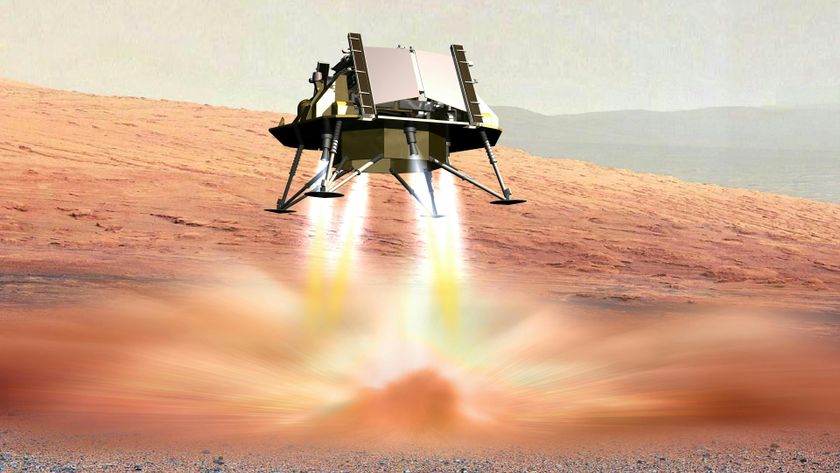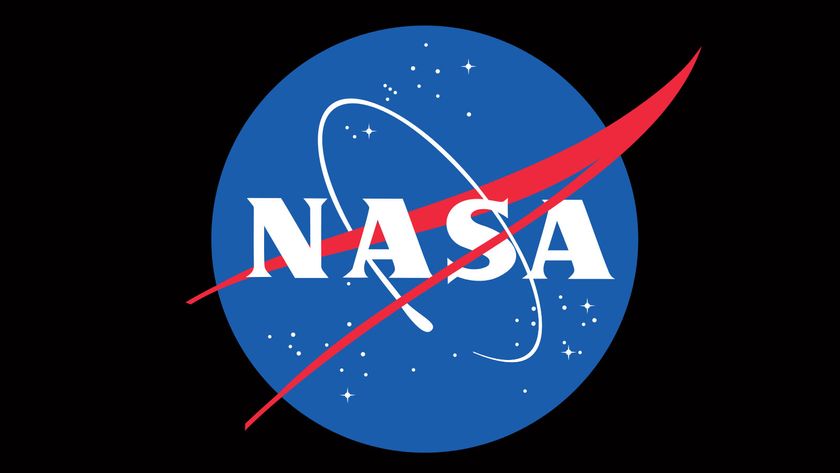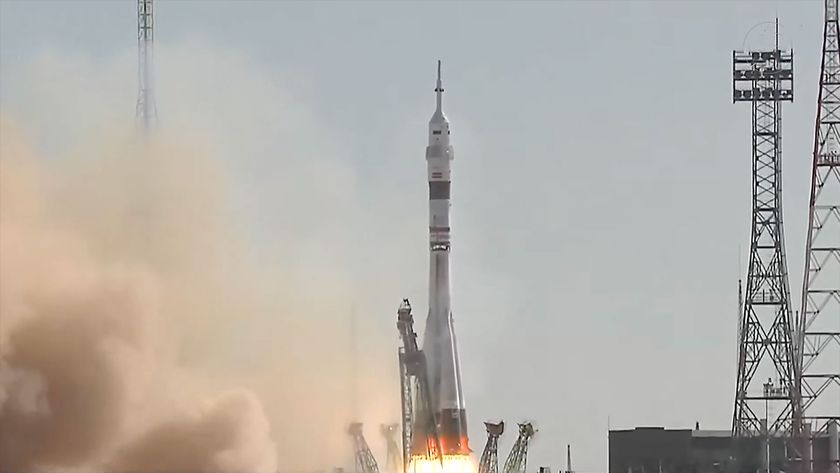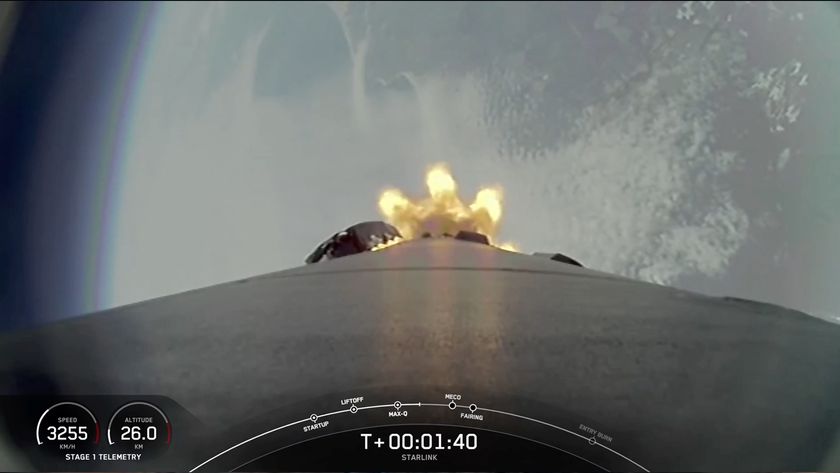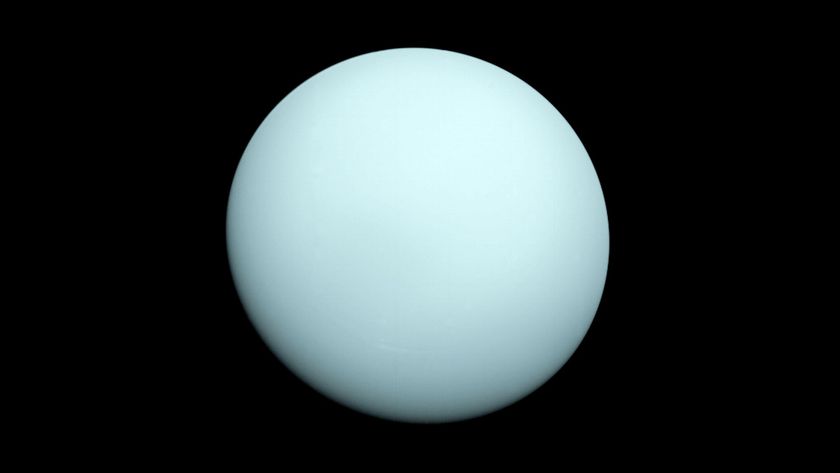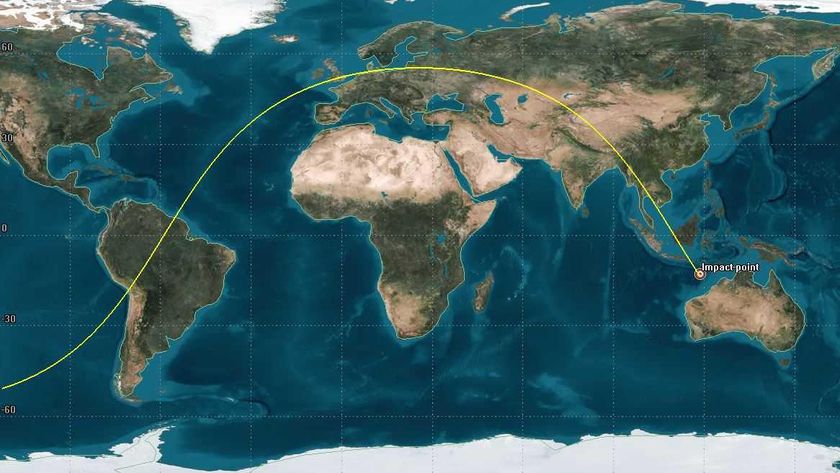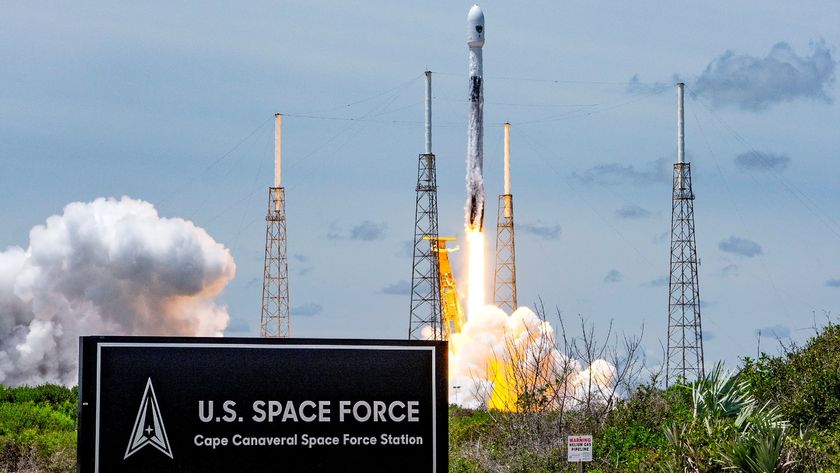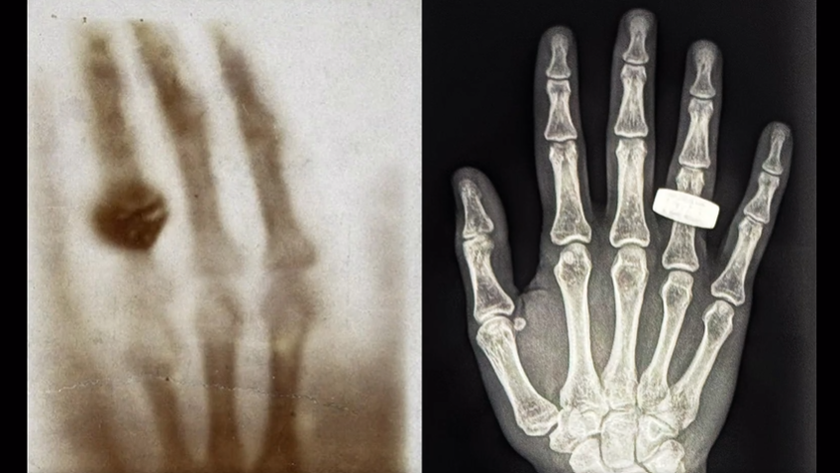Spiral Galaxy Glows in Breathtaking Telescope Photos, Video
Red clouds of gas are speckled among the stars of a relatively nearby galaxy that shines in an incredible new image, one of the most detailed wide-angle views ever taken of the cosmic object.
The photo, taken by a telescope in Chile, puts the Triangulum Galaxy (also called M33, or NGC 598) on display. Embedded in the spiral galaxy is a giant nebula, or gas cloud, called NGC 604. The nebula is about 1,500 light-years across and is about 40 times larger than the Orion Nebula — a well-known star forming hotspot that is closer to Earth.
"A closer look at this beautiful new picture not only allows a very detailed inspection of the star-forming spiral arms of the galaxy, but also reveals the very rich scenery of the more distant galaxies scattered behind the myriad stars and glowing clouds of NGC 598," representatives of the European Southern Observatory said in a statement.
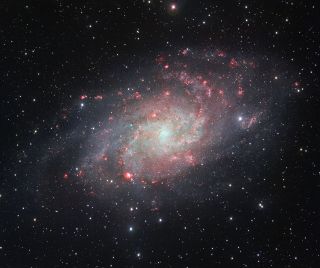
The new image, released by ESO, was taken by the VLT Survey Telescope located at ESO's Paranal Observatory in Chile. Star clusters and dust also glow in the newly-released picture.
M33 is 3 million light-years from Earth and is the second-closest large galaxy to Earth. (The Andromeda Galaxy is the closest large one.) NGC 598 is located in the northern constellation Triangulum and is just visible to the naked eye during a dark night. The galaxy is also speeding towards our own Milky Way at 62,000 mph (100,000 km/h) .
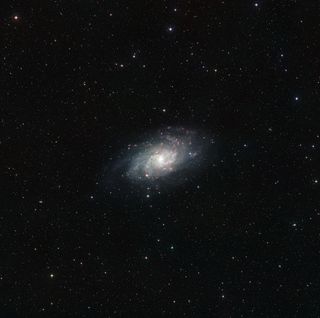
"This picture was created from many individual exposures, including some taken through a filter passing just the light from glowing hydrogen, which make the red gas clouds in the galaxies spiral arms especially prominent," ESO representatives said in a statement.
The letter "M" stands for "Messier", after the catalog by French astronomer Charles Messier who created a database of objects to help him distinguish them from comets. Astronomers believe M33 was first documented in the 1600s by Sicilian astronomer Giovanni Battista Hodierna.
Get the Space.com Newsletter
Breaking space news, the latest updates on rocket launches, skywatching events and more!
Follow Elizabeth Howell @howellspace. Follow us @Spacedotcom, Facebook and Google+. Original article on Space.com.
Join our Space Forums to keep talking space on the latest missions, night sky and more! And if you have a news tip, correction or comment, let us know at: community@space.com.

Elizabeth Howell (she/her), Ph.D., was a staff writer in the spaceflight channel between 2022 and 2024 specializing in Canadian space news. She was contributing writer for Space.com for 10 years from 2012 to 2024. Elizabeth's reporting includes multiple exclusives with the White House, leading world coverage about a lost-and-found space tomato on the International Space Station, witnessing five human spaceflight launches on two continents, flying parabolic, working inside a spacesuit, and participating in a simulated Mars mission. Her latest book, "Why Am I Taller?" (ECW Press, 2022) is co-written with astronaut Dave Williams.
